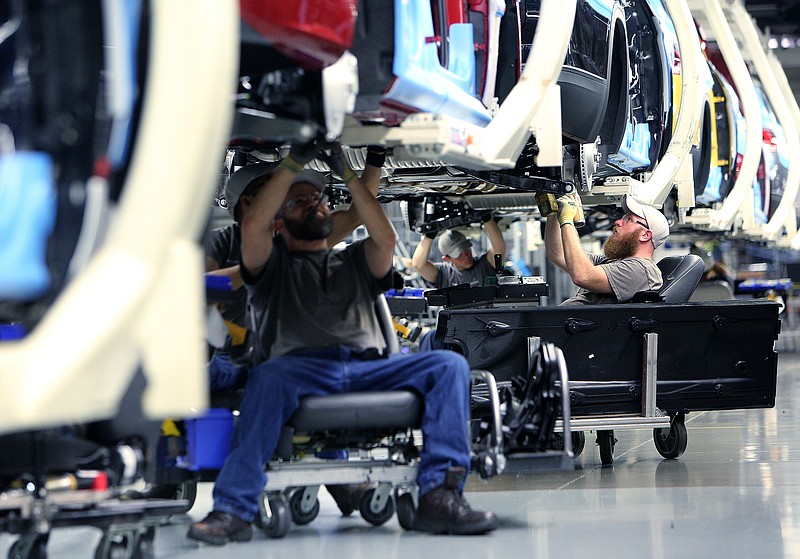Hamilton County taxpayers just learned of the proposed incentive package with Volkswagen for its planned expansion to build an electric vehicle here.
We learned that the city and county are recommending a capital grant to VW for $2.5 million each.
No specific financial information has been revealed about additional property tax abatements through the payment-in-lieu-of-tax (PILOT) program. However, wording in the original 2008 PILOT agreement suggests that the city and county may have committed back then to PILOTs anytime VW expands.
Here are some key takeaways.
1. Original VW incentive warranted:
Volkswagen has been a positive addition to our community. Local tax incentives were warranted for Volkswagen in 2008. In addition to public benefit in terms of jobs and investment, it was one of those rare instances where subsidies may have tilted the scales since the automaker may have had two equally compelling choices (most likely, Huntsville).
2. Magnitude of previous agreements:
Previous tax breaks from the city, county and the state (in 2008 and 2014) made VW the most heavily subsidized business in Tennessee history, with a taxpayer investment estimated at more than $800 million. The new incentive package may take that total to over $1 billion dollars.
In 2018 alone, $17.5 million in local property tax was abated (not collected) as a result of the VW tax break agreements. Its current PILOT agreements last until 2039.
3. Impact of tax breaks on other community priorities:
Our city and county governments abated a total of $26 million in property taxes in fiscal year 2019, with $17.5 million attributable to the two VW agreements. The amount abated in Hamilton County due to PILOTs in 2016 was greater than for any other county in Tennessee.
This issue matters. We have lots of needs in the city and county. Services and projects cost money. When companies are under tax break agreements, they pay no (or greatly reduced) property taxes for police, fire, street paving, parks, workforce development, wastewater treatment, etc., thus shifting that burden to the rest of us.
4. Opportunity to improve tax break language:
This new expansion presents an opportunity for Mayors Andy Berke and Jim Coppinger and the Chamber of Commerce to try to negotiate changes to wording in the existing PILOT agreement to look out for city and county taxpayers and for workers at the plant. Here are examples of wording that could be added:
* Stipulation of an average annual wage of at least $50,000 for new employees. This is the number the Huntsville reportedly negotiated with Mazda-Toyota for the 4,000-job plant announced in 2018. A study released in 2015 by the Center for Automotive Research found that Mercedes has the highest paid production workers ($65 an hour in 2014) at its plant in Alabama, while VW's pay ($38 an hour in 2014) was the lowest among the 10 major car brands with production in the U.S.
* Better clawback language to protect taxpayers. A clawback, or recapture provision, is a clause that says the company must uphold its end of the bargain - jobs, investment, wages - or taxpayers have some money-back protection. The agreement can address what happens if the company closes or moves during the tax abatement period or if the company is fined by the federal government or state attorney general for corporate misconduct.
5. Wake-up call that we need policies to guide decisions on tax breaks:
More public awareness about the magnitude of local tax incentives should be a wake-up call for citizens to ask their elected officials to adopt policies to make sure taxpayers and workers and neighborhoods are protected. It is very unusual for a county of our size to not have written guidelines in place.
Let's limit new tax breaks to companies that provide significant public benefit and meet the "but-for" test. (But for the incentive, we would not build or expand here.) Our negotiators need to structure "tight" agreements, to be champions for a living wage and to advocate for community benefits agreements that address wages, hiring locally, and investing in the surrounding neighborhoods.
Helen Burns Sharp is the founder of Accountability for Taxpayer Money (ATM), a public interest advocacy group focused on tax incentives and government transparency.
